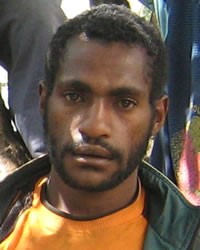Nomane, Kiari in Papua New Guinea

Photo Source:
Anonymous
|
Send Joshua Project a map of this people group.
|
| People Name: | Nomane, Kiari |
| Country: | Papua New Guinea |
| 10/40 Window: | No |
| Population: | 14,000 |
| World Population: | 14,000 |
| Primary Language: | Nomane |
| Primary Religion: | Christianity |
| Christian Adherents: | 98.00 % |
| Evangelicals: | 20.00 % |
| Scripture: | Portions |
| Ministry Resources: | No |
| Jesus Film: | Yes |
| Audio Recordings: | Yes |
| People Cluster: | New Guinea |
| Affinity Bloc: | Pacific Islanders |
| Progress Level: |
|
Introduction / History
The Nomane people live in the Nomane Kiari Electorate in the Salt Nomane-Karimui district of Simbu Province, known as the Last Place in the Country of Papua New Guinea. There are several thousand Nomane men women and children. The region stretches from Auma Gurah to Kiari Laswara over 60 kilometers.
The Nomane region is like an island bounded by the famous Whagi River, which also marks the boundary from Lufa District in Eastern Highlands Province and Chuave District in Simbu Province. Most of the land is forested and with steep mountains and rugged terrain.
What Are Their Lives Like?
The entire population live a subsistence farming life, where they grow most of their own food crops. They grow very little cash crops, and the only cash crop they grow is coffee. With the kind of land and distance and the means of transportation to the main centre, only a small amount of coffee is grown. Just enough to support them to afford the necessities.
Health and education services to the Nomane are of low standard. The road to the area has deteriorated a decade ago and the only way to get into main centre is by foot.
Only very few Nomane are educated. Those are the fortunate ones who have relatives who live in cities where they can get better education.
What Are Their Beliefs?
Most of the Nomane people are Christians. They are a very humble and friendly people, who believe in sharing and support each other for living. Their customs and tradition are still respected.
What Are Their Needs?
The most important thing that they need to make their lives more easier is for a good road link to where they are. Poor road conditions has caused other services to suffer. Schools died out due to teachers refusing to walk or be living in a place where very little is provided. Medications are delayed or some times do not reach the Aid post for several months. Others with severer cases or in critical situations are left to die, for there is no easy means of transport for the sick to be referred to a bigger hospital in the main centre.
Hence, it has been an a big need for the road to be upgraded so to allow frequent travel of vehicles to and from Nomane Kiari which will make way for others vital service to go into the area.